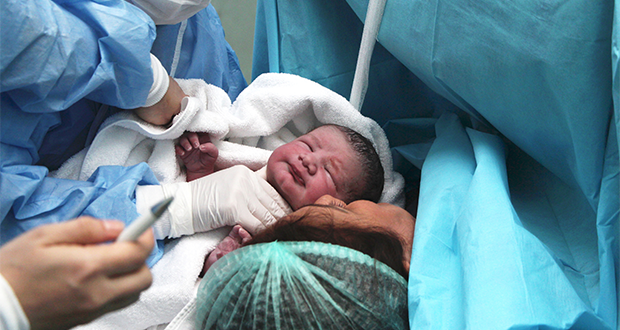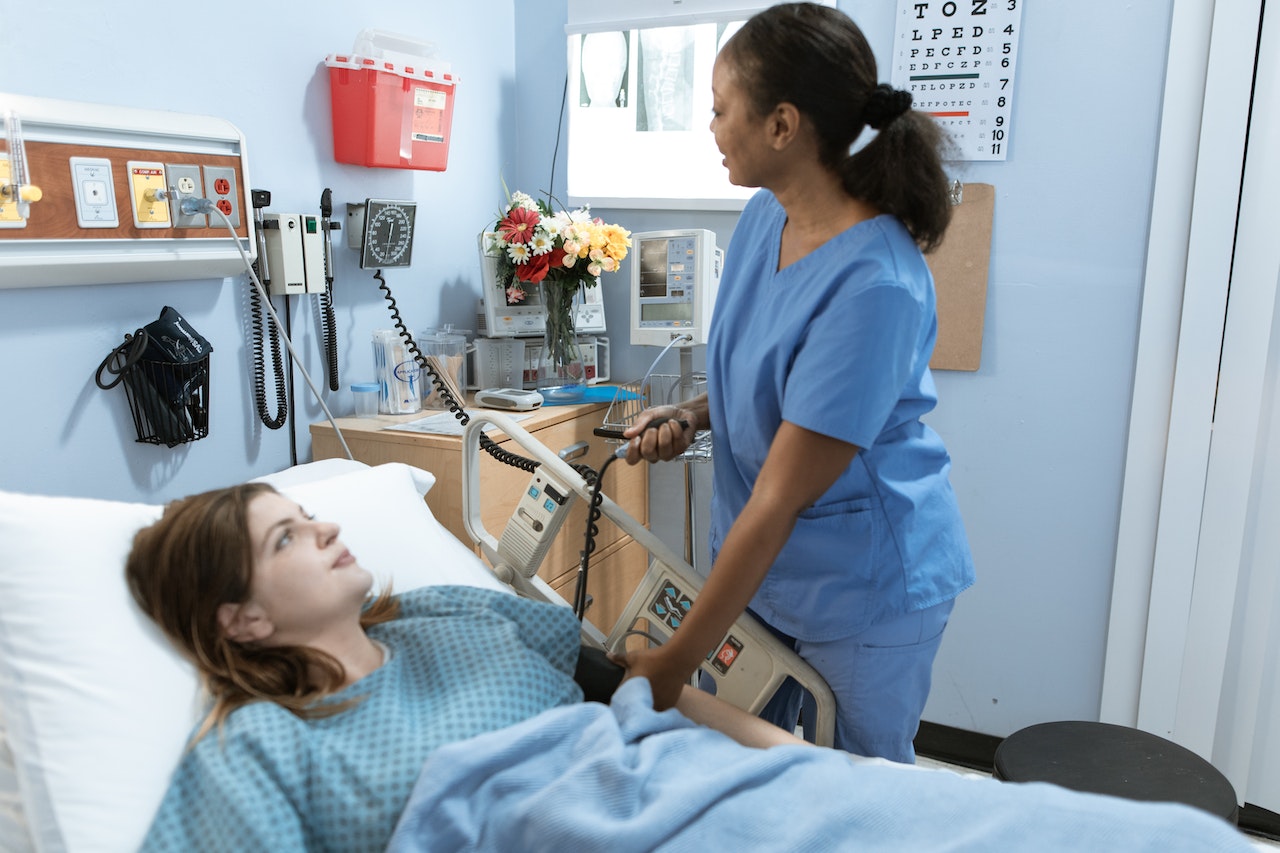Two nurse specialists set up a paediatric community clinic to improve access to expert care for children with allergies – here’s how
Abstract
This article explains how two nurse specialists set up a paediatric community allergy clinic at North Middlesex University Hospital NHS Trust to improve access to expert care for children with allergic conditions. They also introduced other quality improvement initiatives, such as providing training for primary care health practitioners and the establishment of new eczema, transition and food challenge care pathways. The nurse-led clinic has brought great benefits both in terms of timely treatment and health outcomes for the community it serves.
Citation: Durge A, Biggs A (2023) Developing a nurse-led allergy service to improve access to expert care. Nursing Times [online]; 119: 10.
Authors: Adele Durge is paediatric allergy nurse specialist; Anne Biggs is paediatric matron and former allergy nurse specialist, both at North Middlesex University Hospital NHS Trust.
Introduction
The children’s allergy service at North Middlesex University Hospital NHS Trust was established in 2015, comprising a paediatrician, a local GP with a special interest in allergy, a specialist dietician and Anne Biggs as allergy clinical nurse specialist (CNS). Anne was joined by allergy CNS Adele Durge in 2017, and together they developed a comprehensive nurse-led allergy service, supported by a growing and aspirational multidisciplinary team.
Anne and Adele recognised the unmet needs of children living with the debilitating conditions of undiagnosed food allergies, severe eczema, asthma, allergic rhinoconjunctivitis and comorbidities of infants with cow’s milk protein allergy.
Formerly, as a children’s community nurse, Anne audited the children’s community nurse case load for children with severe eczema requiring nursing care at home. Her nursing interventions for patients with eczema, food allergy, asthma and rhinitis reduced emergency department attendances and improved quality of life and parental anxiety of children with severe symptoms. Consequently, Anne attended a steering group with the local commissioners where funding was secured for one session from a GP and a part-time dietitian and CNS to develop a specialist allergy service in a GP clinic for the local population of Haringey, north London.
Severe symptoms often need more specialist help than can be offered in primary care, due to the multisystemic, chronic nature of allergic conditions. This involves expertise in paediatric dermatology, respiratory medicine, gastroenterology, immunology, dietetics and psychology.
As independent nurse prescribers, Anne and Adele were able to undertake comprehensive consultations, physical assessments and investigations, formulate diagnosis and provide personalised management plans to empower families to treat symptoms. One mother commented: “The nurses are amazing and have given my daughter, husband and myself a better quality of life in dealing with her allergy to food and, most of all, her chronic eczema.”
By setting up the paediatric community allergy clinic and increasing engagement with primary care, Anne and Adele, supported by the team, improved allergy care for babies, children and young people, ensuring prompt access to specialists.
Here is a timeline of the development:
2012: Audit of children’s community nursing caseload for children requiring a referral to an allergy service undertaken;
2015: Funding/establishment of paediatric community allergy clinic; establishment of nurse-led clinics and pathways; two- to four-week nurse-led urgent review pathway set up; bespoke GP, school nurse and health visitor training delivered;
2017: Establishment of a comprehensive food challenge service;
2019: Presenting the model of care at a conference; group education workshops for teenagers held after school;
2020: Eczema guideline developed for the emergency department;
2021: Transition-focused work including the creation of guidelines and group sessions with young people;
2022: Pharmacist-led clinics set up.
Aims of service
The Royal College of Physicians has highlighted the ‘unmet need’ of families living with allergic conditions and the lack of access to expert care (Royal College of Physicians, 2003). As allergy nurses within a multidisciplinary team, Adele and Anne’s priority has always been to ensure children in their community receive effective care at their first point of contact, reducing the need for referral to secondary care. They are passionate about engaging health professionals in the community, so families receive effective treatment and advice early.
The main aim of the paediatric community allergy clinic – aligned with the national agenda for children and young people, ensuring care is timely and closer to home – was to improve responsive access to evidence-based care for children with multisystemic allergic conditions, in the community with minimal waiting times, at a time when waiting lists for allergy clinics were at an all-time high.
Adele and Anne enacted the four pillars of advanced practice – providing expert clinical care, leading on quality improvement initiatives, bridging barriers between care sectors through the facilitation of learning and development, and advocating for families. Their leadership initiatives included engaging stakeholders and understanding their priorities; promoting and empowering local health professionals; and innovation to ensure responsiveness to the families, increasing the number of patients seen.
“Demonstrated forward thinking and tenacity to develop a nurse-led service”
Judges comment
Outcomes
From March 2021 to March 2022, Anne and Adele, both working part-time, undertook consultations with around 1,620 children, while also furthering service development. The service had been the first in the trust to run off-site face-to-face clinics during the pandemic in 2020, which was vital to meet the urgent needs of babies with severe eczema and young people with anaphylaxis, while addressing growing waiting lists.
The paediatric community allergy clinic remains responsive; the allergy nurses vet referrals to see babies and children with severe eczema within two weeks. Their treatment, and time devoted to educating the family on self-management and treatment decisions, has led to outstanding outcomes. When the clinic was first set up, the number of patients commissioned to be seen increased by 116% (from April 2015 to April 2016).
Doctors at North Middlesex University Hospital described the eczema guideline, developed for the emergency department, as “excellent” and “very easy to follow”. This has now been developed into a clinical guideline used in all paediatric departments across the hospital and shared with other allergy services and health professionals in primary care. Auditing of new emergency department referrals and review of children whose eczema treatment was initiated in A&E demonstrates a marked improvement in treatment efficacy and early intervention.
Regular primary care training is provided to GPs, health visitors and school nurses. Feedback from attendees include that these study days are relevant, practical and useful for primary practice, taught at an appropriate level by passionate speakers, and an inspiring, truly brilliant day.
Anne and Adele have also set up patient group forums such as ‘Adolescents living with food allergies and asthma’. Educating teenagers on self-management is invaluable. Of all the age groups, teenagers are at the highest risk of fatal anaphylaxis, so investment in their confidence in managing their food allergies is essential.
Adele developed a food challenge service to meet the needs of the growing patient numbers, tailored to suit the local population and secondary care capabilities. She wrote a comprehensive clinical food challenge guideline, including proformas and patient information leaflets. She then upskilled the paediatric day unit staff to take over administering the service, while she developed a robust booking process to overcome the long waiting list.
Convincing senior leaders of the need for investment in nursing resources has been challenging, and a continual review of processes is needed. Overcoming the food challenge waiting list involved three departments, each with competing agendas.
Conclusion
Nurse-led initiatives play an invaluable role in the delivery of allergy services. Despite challenges with funding, investment in allergy nurses has been demonstrated to improve patient outcomes and address the “unmet need” and burden of living with undiagnosed food allergy and untreated eczema. Education on self-management early in the child’s atopy journey enables outstanding results in the prevention of allergic diseases, improved quality of life, and reduced reliance on healthcare.
Key points
- Allergic conditions are now the most common chronic diseases in Europe
- One in five children in the UK have an allergic condition
- Eczema in childhood has a profound effect on health outcomes and quality of life
- Early management of food allergies and eczema treatment significantly improves patient outcomes
- Nurse-led allergy initiatives are indispensable in addressing the ‘unmet need’ of childhood allergies
Advice for a similar project
- Present the need for the service and engage stakeholders. Approach your integrated care board with data including the number of children presenting to the emergency department; secondary care allergy waiting lists; and annual costs of amino acid and extensively hydrolysed formula (eHF) milk prescriptions for the borough
- Identify a central community location/GP practice where most of these families reside and present, to bring the clinic to where it is needed most
- Run regular training days for GPs, health visitors and school nurses
- Ensure a clinic model that allows rapid access slots for infants with troublesome eczema and guidelines that ensure management is robust and consistent
- Develop ‘at a glance’ clinical guidelines with patient information and personalised management plans for atopic conditions that can be used across all paediatric areas
Royal College of Physicians (2003) Allergy: the Unmet Need. A Blueprint for Better Patient Care. RCP.
Help Nursing Times improve
Help us better understand how you use our clinical articles, what you think about them and how you would improve them. Please complete our short survey.





_12.png)

